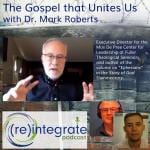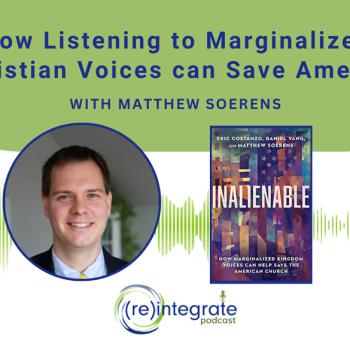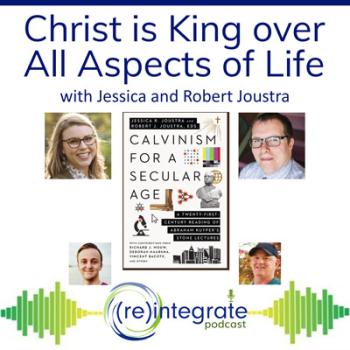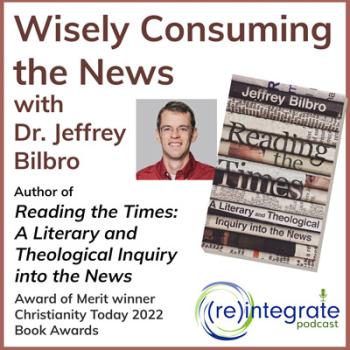[ The Politics of Shalom, Part 1 ]
 In this series of blog posts, I will seek to offer some foundational principles for how Christians can better engage in the political process.
In this series of blog posts, I will seek to offer some foundational principles for how Christians can better engage in the political process.
Many Christians are looking for another way to navigate our political landscape. The Religious Right has taught us that the only way to think politically is through electing presidents and legislators who will fight back against the rise of secular humanism in our society. They’ve convinced a vast majority of evangelicals that America was once a Christian nation and therefore, in order to win the culture war, we must legislate Christian morality and appoint judges and justices that will overturn Roe v Wade and protect Christian liberty. But…
Is There a Better Way?
What if there’s a better way to think about politics? Can we seek a better foundation to Christian engagement in politics? Something rooted more deeply in the hope found in the Bible and less in the fear found in political agendas?
- Instead of the Christian witness in our society being primarily about the things we are against, what if our witness was defined primarily by what we are for?
- Instead of our politics being rooted in fear of change or loss of power or rights, what if it is rooted in hope?
- Instead of our politics being pulled by the nose of the hot-button issues of the day, what if we allowed our politics to be led by the wisdom found in Scripture?
- Instead of fighting to retore what we presume was a Christian America (that may have never really existed), what if we better coexisted in a pluralistic society so that we could have a more attractive loving witness to the goodness of Jesus Christ?
Basing our Politics on a Better Foundation
The Politics of Shalom is based on the doctrine of Creation.
God created a world in which humans have been put in charge as stewards over everything – including the environment but also everything that builds culture, from entertainment and art to education and business, from interacting with each other in our neighborhood to living with one another in a civil society.
And the basis of what we do and why we do it is summed up in that ancient Hebrew word: Shalom.
Cornelius Plantinga Jr. offers this definition of shalom:
“The webbing together of God, humans, and all creation in justice, fulfillment, and delight is what the Hebrew prophets called shalom. We call it ‘peace,’ but it means far more than just peace of mind or cease-fire between enemies…(it) means universal flourishing, wholeness, and delight – a rich state of affairs in which natural needs are satisfied and natural gifts fruitfully employed, all under the arch of God’s love. Shalom, in other words, is the way things are supposed to be.”
Shalom can be translated in our English Bibles as “Peace,” “Welfare,” “Flourishing,” or “Prosperity.” But unlike the heresies taught by Prosperity Gospel (or “health and wealth”) preachers and those who equate the philosophies of Ayn Rand or Adam Smith with the gospel, the biblical notion of Shalom does not seek one’s own prosperity or flourishing, but always seeks the welfare of others.
What We Christians Should Do in American Babylon
While some Christians perpetuate the idea that America was founded as a Christian nation, many others have compared America to Babylon. If we are being truthful, Christians more easily see ourselves like Daniel, Shadrach, Meshach, and Abednego – people who seek to be faithful in a nation that does not know the real God YHWH and can even be hostile to our faith.
While those men benefited from Babylon’s advanced education, they served where and how they could. They took to heart the command from God through the prophet Jeremiah, who told them,
“Seek the shalom of the city where I have sent you into exile, and pray to YHWH on its behalf, for in its shalom you will find your shalom.” (Jeremiah 29:7).
While they certainly knew when and how to draw the line when the government sought to infringe on their faith, their first concern was how they could be a blessing.
Politics of (Not) Loving Our Neighbors
So, it is no wonder that the Old Testament notion of Shalom would be so foundational to the teaching of Jesus, who is the “Prince of Shalom.” Jesus is our peace who is uniting all things in him, things in heaven and things on earth. Jesus said that the greatest commandment is,
“Love the Lord your God with all your heart and with all your soul and with all your strength and with all your mind and, Love your neighbor as yourself.” (Luke 10:27)
I understand the Religious Right’s noble aspirations to move America towards righteousness. But all-too-often, their tactics seem to be more concerned about loving themselves more than loving their neighbors. Thanks to them, evangelical Christians now have a reputation of being more concerned with their rights, their religious beliefs and practices, their conceptions of morality, their perceptions of justice. Evangelicals are more known for their political positions against the world than their compassionate lives and testimony that show and tell how much God loves the world, so much so that Jesus Christ died for it.
They have portrayed themselves as the only ones who know what’s important to the heart of God, and they presumptively and arrogantly dismiss the views of those who have different viewpoints, even the views of their fellow Christian brothers and sisters (especially, it seems, their brothers and sisters of color). Humility has been thrown out of their political framework (which matches the way of the world, doesn’t it? – our nation is polarized into camps that will not humble themselves enough to be quick to listen, slow to speak, and slow to become angry).
Christians are now seen as the ones that are terrible at empathizing or seeking to understand the issues facing people around us who are not like us. We need to do a better job of seeing every single person and every people group as God sees them, as people who bear the divine image, who God loves.
Politics that Does Love Our Neighbors
So, practically, a Politics of Shalom loves and seeks the flourishing of all our neighbors.
Here’s a quick list of some of the things I personally think this would entail:
- It wants to encourage individual personal lifestyle, ethics, and piety but it is also compassionate for those who are lost, like sheep without a shepherd.
- It is not only concerned about the religious liberty of Christians but is also concerned about the religious liberty of people of other faiths or of no faith at all.
- It is just as passionate about the lives of Black people as it is about the lives of the Unborn.
- It doesn’t just want Black Lives to be safe from police brutality, but also safe from a Black subculture that perpetuates broken families and glorifies over-sexualization and street crime.
- It wants to side with those who are protesting injustice while also renouncing vandalism and carnage.
- It isn’t just interested in back-end “law and order” but just as much on the front-end of what leads to such rage – the long history of underlying injustices.
- It is not just concerned about the welfare of our own children in America; it is also concerned about the welfare of the children of those in impoverished countries and those who seek refuge in America.
- It is as desperate to seek healthcare for myself and my family as it is for those without the means of providing it for themselves.
- It not only cares for the lives of the unborn, but also the socioeconomic issues that cause women to become so desperate that they are forced to consider an abortion.
What do you think a Politics of Shalom looks like?













